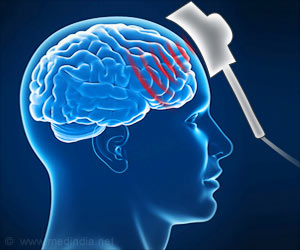
A new study improved memory of complex (real events) by applying transcranial magnetic stimulation (TMS) to the brain region and network responsible for memory.
“On a day-to-day basis, we must remember complex events that involve many elements, such as different locations, people, and objects,” said Melissa Hebscher, lead author. “We were able to show that memory for complex, realistic events can be improved in a safe and non-invasive way using brain stimulation.”
The study took place in a controlled laboratory setting with healthy young individuals as participants. The authors used TMS intending to alter brain activity and memory for real events. The subjects performed a memory task while in a functional magnetic resonance imaging (fMRI) machine, immediately after receiving TMS.
The task involved watching videos of realistic activities like folding laundry or taking out the garbage to measure how memory works during day to day tasks. Subjects were then asked to remember and answer true/false questions about the videos’ content from the memory task.
Multi-voxel pattern analysis (a brain imaging technique) was used to compare brain activity patterns when subjects watched a video to patterns when they remembered that same video.
Findings showed that study participants more accurately answered questions about the content of the video clips after stimulation. Memory network stimulation also improved the number of questions that subjects answered correctly.
READ RELATED: Coronavirus UK: Only 4,900 antibody tests have been carried out
Hebscher added that these methods could also be used to improve the memory of individuals with memory disorders due to brain damage or neurological disorders in future.
The study also found that brain stimulation led to the reinstatement of memories in the brain in high quality. Hebscher describes reinstatement as when the brain replays or relives the original event. After stimulation, a person’s brain activity while watching a video resembled their brain activity when remembering that same video more closely.
Hebscher explains that remembering can sometimes feel like mental time travel and that stimulation enhances this ‘mental time travel’ in the brain and improves memory accuracy. She adds that these findings can aid the development of safe and effective ways to improve real-world memory.
Source: Medindia
Source:






